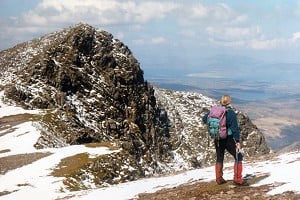
In 2019 Deaf walker David Thompson completed a Munro round. David, who works as a guide/communicator for Deafblind Scotland, now enjoys getting out on the hills in a less goal-oriented way. Most people take hearing for granted, both on the hill and off, and it would be easy to overlook the challenges that deafness poses to a keen hillwalker. We asked David to explain.
At two years old I caught meningitis, and though antibiotics helped me pull through, the side effect was severe hearing loss. At least I didn't end up in a wheelchair.
I attended Henderson Row School for the Deaf in Edinburgh, and used Total Communication-Sign and speech in my early years. All kids wore hearing aids no matter how deaf they were. Then my parents had to decide which school to send me to - Donaldson's for Deaf Children or St Giles. I went to St Giles, where I used speech and lip reading to communicate.
After school I got involved in loads of Deaf social events, and sports within the big hearing world to improve my British Sign Language (BSL), so that I could live in both worlds. English is my second language. BSL is a visual gestural language without English grammar. Hearing people would speak out loud, 'what is your name?' but Deaf people would sign 'your name what?'. The sentence can be another way round, similar to a language like Gaelic or German.
Doing the Munros
When I was a kid, I did some hill walking with family, friends, and the Scouts. I always enjoyed the peace, the views and the walking. Before I was 20 years old, there were no subtitles on TV and it was easy for me to get bored without them. I therefore pushed myself to do a number of sports and outdoor activities to keep me busy. Looking back, I can see it was not just to keep me fit, but it was for my 'wellbeing'. I face communication barriers almost every day and it affects my mental health. You could say the outdoors is my escape!
Since I was 12 years old, I have visited and stayed with my Deaf school friend from Inverinate. We would sneak off on hill walks while his parents were at work and without them knowing. His father was the gamekeeper and he knew the huge area like the back of his hand. When I found out through British Deaf News that the Deaf Mountaineering Club had booked two cottages in the next village of Dornie, my wife and I joined the club. From there we enjoyed a number of hill walks in that week of May. For the next eight years we remained in the club and walked in many places in the Highlands, the Isles, around Scotland, the Lake District, and over in Ireland.
As I was enjoying my hills people began to ask me, "How many Munros have you done?" At first, I didn't know what a Munro was! Later, I disliked the question because I felt it focused only on the number. I was more interested in telling tales of all the adventures I had as I walked and climbed. There are lots of Munros I have done multiple times. However, they often take me to areas I have never been to before. It took me 37 years to complete them all.
My wife Audrey and I used to do quite a lot of Munro bagging, we were over halfway, but we stopped after starting our family of three children. I managed to do the nearby quick Donald hills, but in addition to being a busy father, I played on a local squash team. I trained hard and played a lot of squash. Four times I was in the World and two times European Deaf Squash Championships as an individual. I was also on the Scotland team for ten years. I started picking up Munros again slowly and once the kids were almost grown I started backpacking again. Audrey, since becoming a busy mum, only managed six Munros, but we have done several hill walks on other mountains that are Corbetts or Grahams either with the kids or without.
Here is one of my tales: We took our first baby Ben on a walk through a glen on a nice warm day. Then we decided to go up to the col, since it was still a nice day. We then took a risk and made it to the summit. Once we returned, we checked the translation of Maol Chean-dearg - bald red head. That perfectly describes Ben's head!
To do all the Munros requires a lot of travelling. My problem, like that of most people, was trying to fit in these expeditions around a busy working life and family commitments, in addition to my various sports.
I was disappointed the Corbett and Graham books came out so late. If they had come out earlier, I could have combined some of them with the long walks to the Munros. Again, don't ask me how many Corbetts, Grahams and Donalds I have done - I am back to simply enjoying my adventures, not having to mark them down in books!
Knowing I was sometimes taking a risk, going out on my own, I felt it was time to join The Edinburgh Mountaineering Club. I have enjoyed quite a number of club meets over the last three years. It has taken time for me to get to know the members, like any club I have joined.
My Last Munro was Bidean nam Bian. It took a while to find a day that my family of five were available. In total, I invited 80 people to join me, but my brother Peter and niece Francesca from Milan made up only the seven of us that did the climb.
Weather Forecast - Mostly cloudy with some showery rain, some of this may be heavy and prolonged at times in the afternoon. Potential for some strong winds at height.
I checked and double checked. The early morning looked the best time to go up. We made sure to pack rain jackets, gaiters, hats, gloves, spare clothes, etc. However, the weather turned out far too nice for us! Disappointingly, there was hardly any wind to cool us down. It was in fact quite humid, leaving us sweating. I was very proud and pleased we all did well on this good, tough, high mountain. We did 15.6 km, or 23,069 steps...
Learning the ropes
It is harder to learn skills from friends, or on courses, if you can't hear what's being said. When I go on a course, I require a BSL interpreter. I am grateful Edinburgh Council took care of booking the interpreters and covers the cost of interpreter fees - they're not cheap.
On a course 'Summer Mountaincraft and Leadership' I was very grateful to the Lake District outdoor centre who covered the cost of an interpreter. Andy Carmichael was with us for the full four days. Andy, who I know has Deaf parents, did a grand job interpreting for me on all indoor and outdoor activities. Though officially a summer skills course it was in fact November, and when we camped out there was frost and ice outside. We turned up for night navigation. Every time the tutor spoke, Andy would take off his gloves to do signing, and then quickly put them back on when no one was talking, before his hands froze up. There were another two Deaf guys with us on the course, and whenever one of us wanted to say something Andy would have to translate our signing. He went to bed early, worn out from all the interpreting - as well as participating in the outdoor activities! I learned a lot on the course and this gave me more confidence to head out for myself.
As well as courses I learned to use a map and compass, and read a variety of sources such as outdoor magazines, guidebooks and the newsletter the Angry Corrie (sadly missed). I also made regular trips to the City Library for interesting climbing and hillwalking books.
About 25 years ago a night school for rock climbing was held at Meadowbank Sports Centre. It was mainly a brick-type wall, with some gaps or bricks sticking out for holds. I went with Audrey, my wife, who is profoundly deaf. We learned many valuable lessons from the tutor, again with an interpreter provided, and afterwards registered at Alien Rock. Sadly, we never moved on do lot of outdoor climbing as we started to have a family. We only did some scrambling, and a bit of rock climbing. Now I am getting back to indoor climbing.
Communicating on a mountain
Old joke: A Deaf man is climbing above, when he slips on loose stones. He quickly writes a note, wraps it round a stone and throws it down to the Deaf man below. It bangs on his head. He reads aloud the note "BELOW". Whoosh: It rains stones on him!
When on a hill walk with other Deaf people, using BSL lets the communication flow, regardless of whether we are sitting, standing or walking on wide tracks. Some mountains also have dual paths, which makes it easier to communicate by signing. Our eyes need only a split second to swing between looking at the path and signing. However, when walking along a narrow ridge, on rocky or loose stones our eyes are only on the trail, and chat has to cease. People who can hear can continue their conversation on these parts.
For me, being Deaf, I would say I have some heightened use of my eyes. I can see more details in the landscapes and mountains. Sometimes I have spotted something that has passed the notice of a hearing companion. A cloud or a tree in the forest will look like the shape of something to my imagination. I have pointed out a quiet plane overhead, which surprises them.
One time, my friend and I couldn't sign while going over rough stony ground. When we reached an almost flat grass slope going downward, we started signing. Suddenly, his foot sank in a hole and he twisted his ankle. There was no more chatting as he limped all the way down and put his foot in a cold river. We were in the Lake District and saw two men rock climbing. We were saying to each other that it looked easy. A hearing guy at the top understood what we were saying. To our surprise he told us in BSL that it was not easy. Some of the routes were particularly hard.
Deer stalking
Three of us came down the ridge and I could see the gamekeeper was not happy with us. He challenged me - Why did I not phone in advance to enquire about deer stalking? I sheepishly replied - I am Deaf. He asked the next person. He too says - I Deaf. It was the same reply from the third person. We moved on down. Yes, I was embarrassed and angry. We were totally wrong. Sometimes you'd get an answering machine with updates on stalking info, but twenty-five years ago we couldn't use a phone, so there was no point placing a call. I did have a phone with a Fax or Minicom, but most did not.
Nowadays, with technology, we can use SMS or email or check sources of info online. Despite what happened with the gamekeeper, only a month later I was coming down from Ben Vrackie when I saw a man with a rifle on his back in the far distance. Ah, the Gamekeeper again! I moved to the right, and he moved to the left. I moved left and he moved right. I'd better walk straight down to him, I thought, and face the embarrassment and hassle again. As always I said hi, to let him know I am hard of hearing. The gamekeeper said hi just like me. We chatted a little and even discussed our hearing loss. This time he asked me nicely - did I find the whitewashed summit trig OK with my map and compass? Yes, or course...
Mishearing people outdoors
I do OK in one-to-one conversation, but in group chat I get lost. It is pointless to try. I need to see a person's face for their expressions, to be able to lip read and to hear a good clear voice. When I have these three components, I can work out what is being said.
On an easy Borders hill walk, I couldn't understand what a new club member was saying. I started to be embarrassed how often I asked him to repeat what he was saying. Then I gave up. I took out my mobile, wrote a text and showed it to him. He understood. He took out his mobile and texted me back. Reading while we were walking, I was finally able to communicate.
Sometimes a person beside me will talk in a normal voice, but the wind takes it away. They don't speak louder in case they lose their voice. 'Louder doesn't mean clearer'. Some people try to speak into my hearing aid. But that does not work. After one meet, I was about to go home when I was stopped by a member and asked which I prefer, speech or lip reading? I answered, "both". However, that question would have been better asked at the start of the weekend! I am not saying this club should know better. This still happens to me at various clubs and at work. We all keep learning as we go along.
Members try to tell me the name of the mountains they will climb, or have climbed, but I don't know how to hear or pronounce half of the Gaelic mountain names. When another member says, "David, it is near Cluanie Inn", which I know, or better yet, shows me on the map or in a guidebook, then I get what they are trying to say. Visual aids are easier for me than just using mouths.
Hearing aids on the hill
During childhood I wore two pocket sized hearing aids. These were problematic due to the weight, the bulky 9-volt battery, a cord in the way, and a harness worn on top of my jumper (and later inside the jumper to spare my embarrassment when I realised it almost looked like a bra). Later I moved on to a behind-the-ear aid.
But even these have disadvantages when hillwalking. The NHS aids are not waterproof! So I ensure I'm wearing a hat or a hood at all times. When it's windy I must remember to bring a headband/buff to cover them, too, or I'm driven crazy by the whooshing of the wind in the microphone. I try to listen and chat with Hearing walkers, but it is difficult. A few times the rain has got into my hearing aid's battery, and then it fizzles out until I can get it dry indoors and fitted with a new battery. Each battery lasts about two weeks, as I use it all day, every day.
Backpacking
Before I had my kids, I used to go with my wife Audrey and friends on a number of trips. Since I have gotten back into it now my three kids have grown, it has been mostly by myself. I just require a one-person tent. In total, I have done twelve two-day trips and one three-day trip. On these trips, I have bagged 61 Munros and 59 Munro Tops.
On my first backpacking adventure, six of us met in Glen Etive. I chose to cross the river at a narrow point where there was a short cut up to Allt Mheoran. I managed to get across and helped the others over the fast-flowing river. When it was Audrey's turn, I held out my hand, but she slipped and fell into the river which carried her downstream. I quickly took off my heavy rucksack and ran after her along the bank. She appeared to be sitting on the water, which carried her 30 or more feet before she tumbled about ten feet over a waterfall into a deep pool. She managed to struggle to the bank and grabbed a walking pole that was held out to her. She was unhurt but shaken. She got out of her wet clothes and put on spare ones, which by some miracle were dry thanks to her rucksack being well packed to protect it against the wet weather. After the rescue, the midges descended on us and caused us to hasten on our planned route up Ben Starav and later Beinn nan Aighenan before we camped for the night at the col. Other Munros were tackled the next day making it a total of seven Munros during a two-day venture. Audrey was her usual energetic self on the walk but her adventure at the waterfall has become a legend!
Buddies
On one club trip I slept like a log, which was unusual because I work night shift. I sat down at breakfast and a member said, "We were outside in the snow at 3am due to a faulty fire alarm. It rang for ages and woke everyone up!" I understood the second time she said it and laughed loudly. I had been left behind in bed because three new members were sharing the two bunk beds with me, and didn't know of my deafness. After that, I try to make sure I share a room with someone who is aware of my deafness. This is called 'Deaf buddies'. There are some in my club who make sure I get the updates, keep me right and repeat some of the good jokes and stories.
Film and theatre
I have not yet been to a Mountain Film Festival because they are still to subtitle their films. There are eight cinemas in Edinburgh with about 3% of films digitally subtitled for the Deaf. When you remember that one in six people are Deaf or hard of hearing, the numbers are not right! One club member told me she had seen a mountain film with subtitles. It turned out it had been a foreign film. I am disappointed I missed it.
Years ago, I watched Touching the Void with digital subtitles. However, it was hard to read the white subtitles on the predominantly snowy mountain background. It temporarily snow-blinded me! 'Touching the Void' was also a theatre show. Three months before it was due to open, I enquired who the BSL interpreter was going to be and on which side of the stage they would be standing. Two weeks before the show, they still did not have answers for me. At this point I knew the seating with the best view of the BSL interpreter would be gone. Of course, I was angry and disappointed. Later I learned the interpreter refused to do this job because she was given an impossible position for the interpretation to be effective to the viewing Deaf. I congratulated her for standing up on this issue. She also saved me wasting time and money.
- If you are a National Deaf Children's Society member aged 18-25, and keen to enjoy Scotland's great outdoors on foot, the Out There Award might help kick-start your journey into the outdoors, while helping you meet people, boost your CV, have fun and build your confidence along the way. See here
- For hearing people, it can be helpful to have some tips for communicating clearly people who are Deaf or have hearing loss. See here

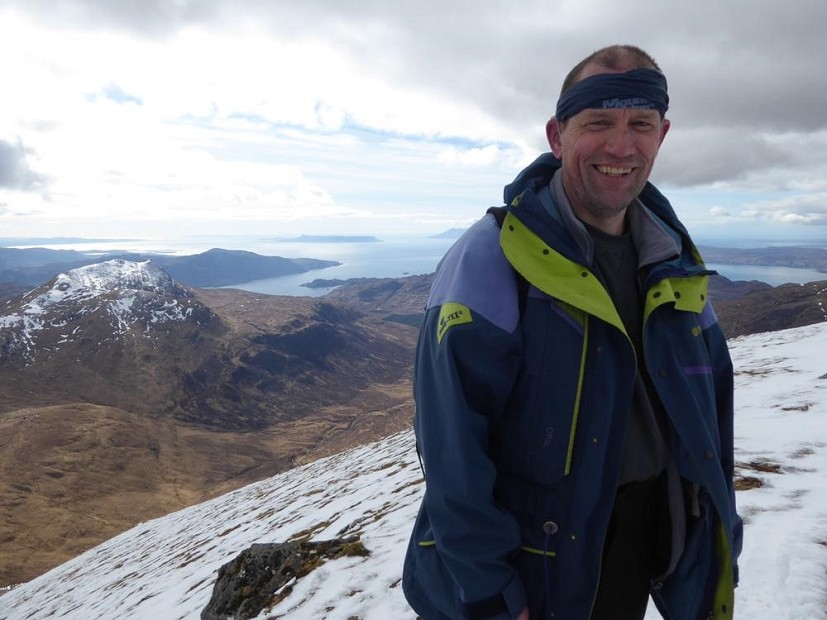
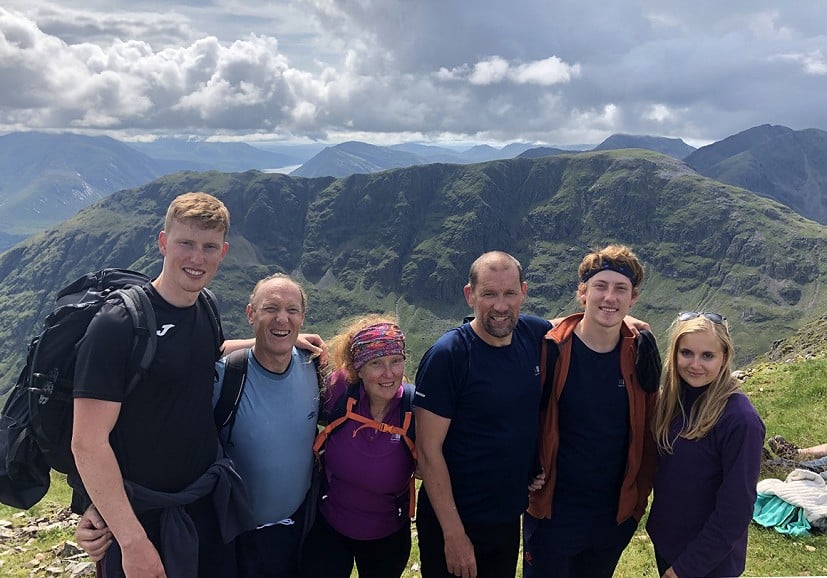
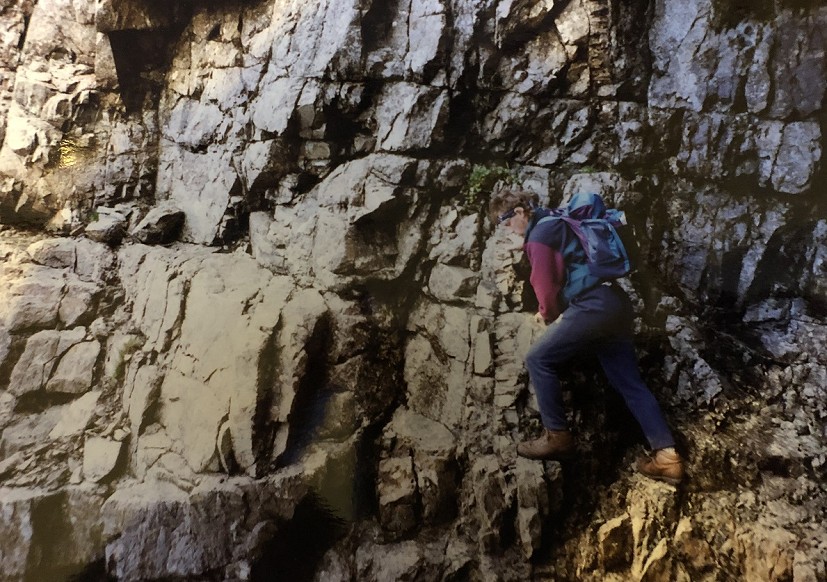
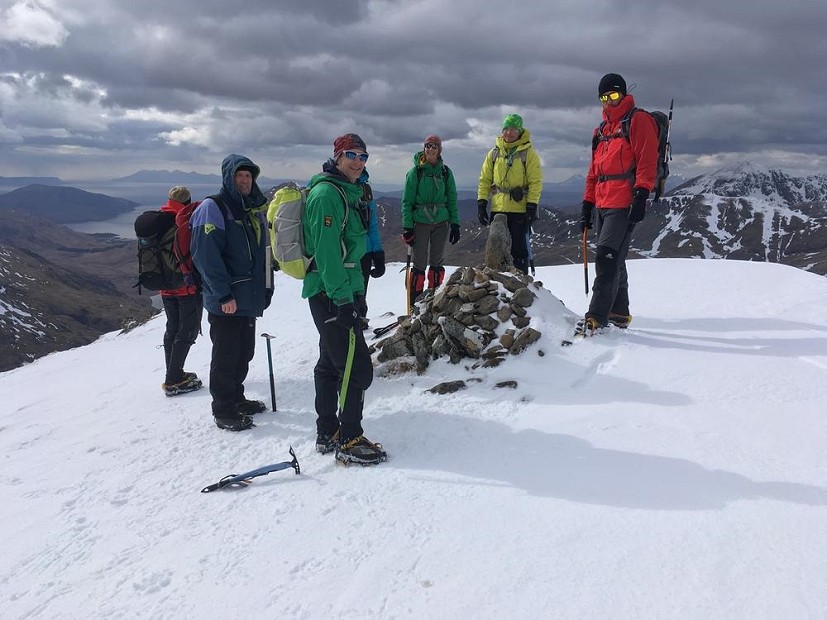
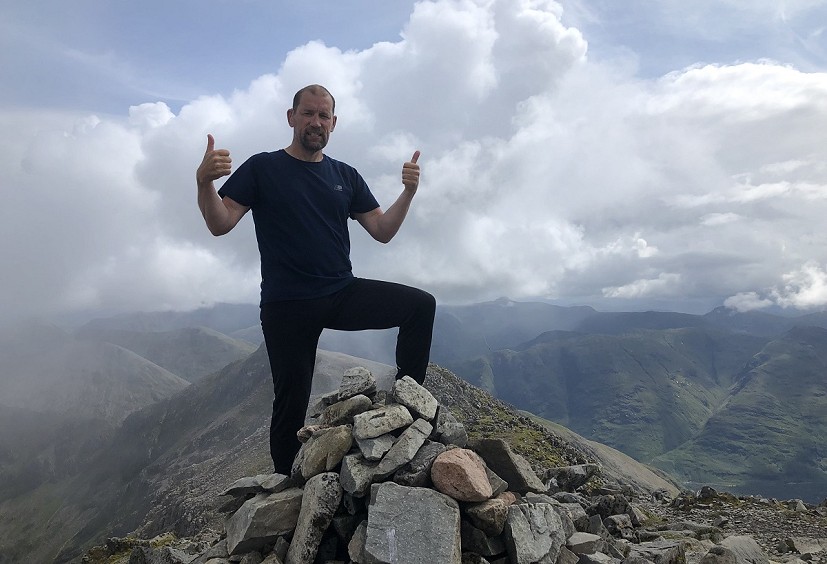
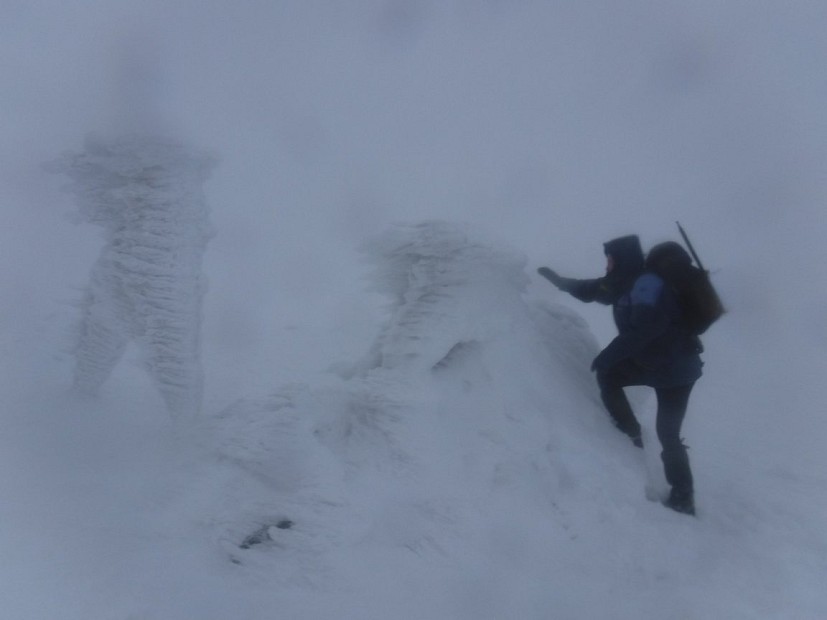
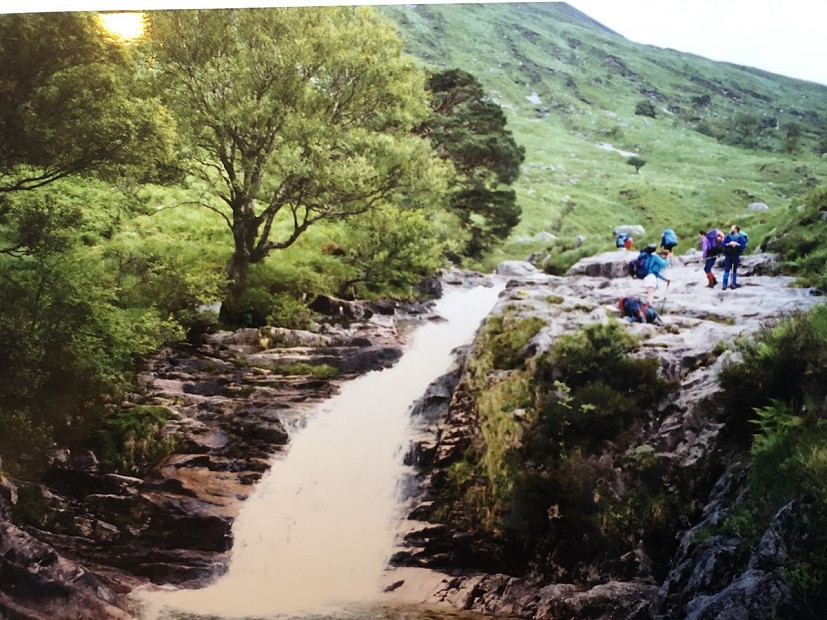
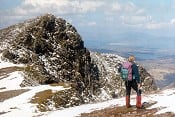


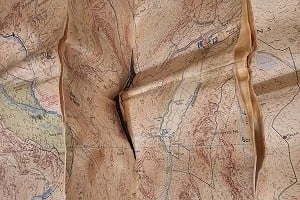
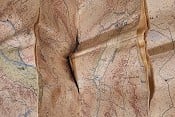
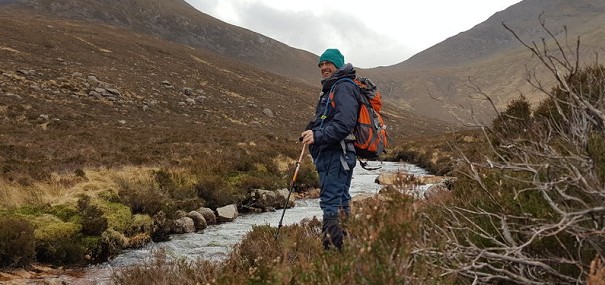
Comments